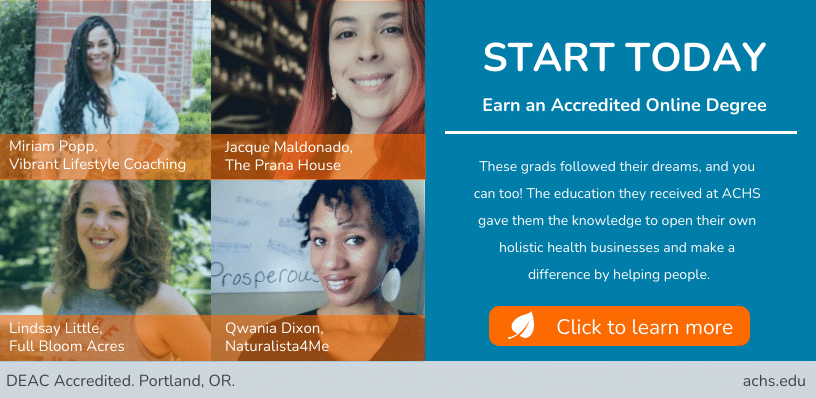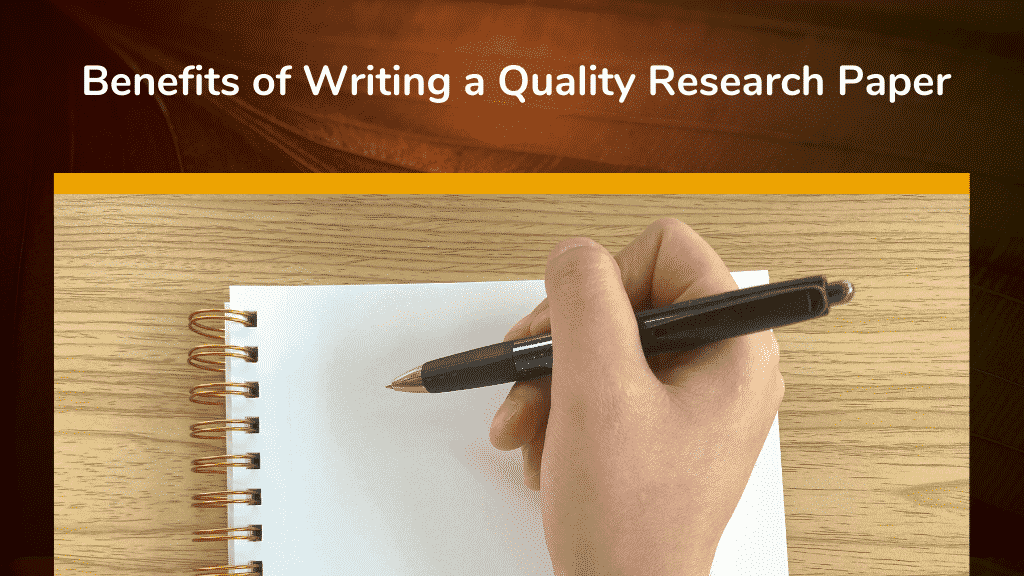
Contributed by ACHS alumni Melissa Abbott, MS, CPT, NC
Why It’s Important?
You have just been informed that you’re going to write a research paper, and you have no idea how you are going to start the writing process and develop a quality research paper. You may even doubt that you can take on such a challenge. I’m here today to say YES you absolutely can do this! The following writing tips and support strategies offered below are important incentives and motivations involved in the writing process, for your career, and future goals. The writing process involves your body, mind, and spirit. It is all included because you put all your energy and immerse your whole being into it.
Here’s the exciting part, can you imagine having your paper being read by several hundred maybe even thousands of other academic professionals, researchers, and scientists from around the world? It is one of the most incredible feelings to achieve a status of recognition from your hard work in research and the passion(s) you have in holistic health from your peers. Scientists, doctors, holistic professionals in every domain, researchers, collaborators looking for you, your knowledge, and expertise. Sound too good to be true, nope, it happened to me and I hope that it can happen for you too!

The significant impact and support that I received in my first class at ACHS, RES501: Assessment and Integration of Research Online, with Professor Dr. Nicole Betschman, was empowering. Dr. Betschman armed and mentored us with the best skills and writing techniques, coping strategies for our anxiety and doubts, and outlines to produce quality research and writing. However, she said one thing that stuck out in my mind throughout my studies at ACHS, register with an online platform where you can post your papers for others to read and get yourself noticed in your chosen field of interest. I did just that and since posting my very first paper to ResearchGate (researchgate.com), it has garnered over 1,000+ reads from others in my area of concentration who have emailed me to ask me questions, inquire about my future projects, and offers of potential future collaborations. [View current Faculty supporting
students in research studies.]
Listed below are just a few of the many benefits to writing a quality research paper:
- Recognition from peers in your field of work for all your hard work and showing pride for your academic institution.
- Collaboration with others in your field of expertise from around the world and the potential for research jobs or job recruitment offers.
- Opportunities for growing your business and career while contributing and supporting your field of interest.
- A showcase of your accomplishments and research papers on your resume or curriculum vitae that highlights your chosen area of expertise to potential employers, clinical trials, and research collaborations.

How to start the writing process?
You may be asking yourself … where do I begin, how do I pick a topic, what do I research? Let me help by offering a few strategies or “tools” for your writing “toolbox” to get you in the headspace to explore these brainstorming questions.
1. Sit comfortably with a notebook, make a cup of tea, turn on a diffuser with a blend that promotes increased focus and cognitive awareness, put on some background music, create a space for exploration with little to no distraction, and remember to take several deep breaths during your research sessions. We tend to hold our breath when we’re deep in the research and writing process. This always helps refocus the brainstorming process as well as reduce your stress and anxiety accumulating in your body, mind, and spirit. I do understand these feelings and they can distract you from your best intentions.
![]()
2. I highly recommend that you pick a topic and formulate your hypothesis on something you already know well, or an area of interest that supports your future career goals, or on a health condition a friend, family, or that you are challenged with; this is a great place to start. My first paper that received all the recognition came from years of personal experience which made the writing process so much easier. This takes so much of the anxiety away from picking a topic at random. If you are invested in the subject you will want to produce a quality paper with integrity that resulted from years of your experiences and knowledge. You are worth it!
![]()
3. Time management is key to staying on task and your module assignments in class. I recommend blocking out two-hour intervals on your research then take a break, walk away, go outside, stretch, go for a walk, get a snack. This also permits you to do other things without getting anxious that you haven’t finished other tasks or responsibilities. These intermissions create more space to return with fresh eyes, mindset, and less tension in your body from sitting. Or even better yet, use a standing desk!
![]()
4. Creating a few folders; one on your desktop and one in your bookmarks, where you will collect and manage the content for each component of your research paper helps with the organization of each of the sections involved in a scholarly research paper. Then you can add multiple subfolders for each part of the paper. For example, I had a folder entitled, RES501 Thesis, then subfolders entitled Introduction, Methods, Discussion, Results, and Conclusions. I had one folder titled Notes so that I could cut and paste notes from the highlights taken from research articles and journals that help me to formulate my findings, data interpretations, and key points. One last thing that helped was keeping a file titled Books/Citations so they are all in one place and you don’t have to go looking for them afterward. Another way to decrease your anxiety and stress!
![]()
5. I also recommend creating two bookmarks to collect all the supportive websites, journals, and resource materials so you don’t have to look for them each time you need them. For example, I had one bookmark entitled, Research Platforms, where I had links to PubMed, Elsevier, Google Scholar, LIRN, Oxford, and BMC. Then I had a second one entitled, Writing Tools, where I had American Psychological Association (APA) publication manual, Purdue Online Writing Lab (OWL), and citation checkers such as Citation Machine and Cite This For Me.

Keep all your supportive tools at your fingertips. Use highlights of different colors to capture the key points within the articles and journals you collect so you are less likely to forget where you read specific data to support your hypothesis. More importantly, it is my hope these tools and tips from personal experiences help support you on your writing adventure and the journey your academic career takes you. It is a very exciting time and it brings great opportunities for success, increased confidence, and empowers you to continue working hard at what you love.
When you find yourself in a writing slump, feel your anxiety increasing or you’re just having a bad day, it is okay to ask for help and support from your fellow peers, your professors, your home support team, they all want you to succeed. I want you to succeed and if you would like to discuss some strategies or need help from a fellow researcher please don’t hesitate to reach out and email me. I would be thrilled to help you produce the best paper you can while being true to yourself and your vision. Be well and happy writing!
Kindly,
Melissa Abbott
References:
[1] American Psychological Association (APA), (2021). Publication Manual of the American Psychological Association (7th ed.). Retrieved from https:// apastyle.apa.org/
products/publication-manual-7th-edition
[2] Citation Machine® – write smarter. (n.d.). Retrieved April 02, 2021, from https://www.citationmachine.net/
[3] Save time and improve your marks With CITETHISFORME, the No. 1 citation tool. (n.d.). Retrieved April 02, 2021, from https://www.citethisforme.com/
[4] Purdue Writing Lab. (n.d.). Purdue owl // Purdue Writing lab. Retrieved April 02, 2021, from https://owl.purdue.edu/
owl/purdue_owl.html
Author Bio
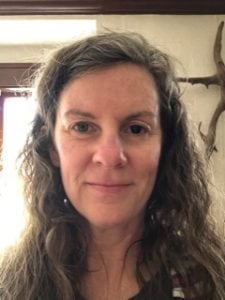 Melissa Abbott received her Master of Science degree in Complementary Alternative Medicine at ACHS, August of 2020. She started her own holistic nutrition and wellness business to support others in their pursuit of optimum wellness. Her primary mission is to support others in their journey to finding resilience from psychoneuroimmunological (PNI) injury from early childhood maltreatment, stress, and trauma.
Melissa Abbott received her Master of Science degree in Complementary Alternative Medicine at ACHS, August of 2020. She started her own holistic nutrition and wellness business to support others in their pursuit of optimum wellness. Her primary mission is to support others in their journey to finding resilience from psychoneuroimmunological (PNI) injury from early childhood maltreatment, stress, and trauma.
Contact info: Resilient RootZ Wellness, LLC.
[email protected]
[email protected]
@resilient.rootz
Disclaimer: This article is for informational purposes only. It is not intended to treat, diagnose, cure, or prevent disease. This article has not been reviewed by the FDA. Always consult with your primary care physician or naturopathic doctor before making any significant changes to your health and wellness routine.
Disclosure of Material Connection: I am an alumni American College of Healthcare Sciences, the Institution that publishes this blog. However, all opinions are my own. This blog may contain affiliate links. I am disclosing this in accordance with the Federal Trade Commission’s 16 CFR, Part 255: “Guides Concerning the Use of Endorsements and Testimonials in Advertising.”
About American College of Healthcare Sciences
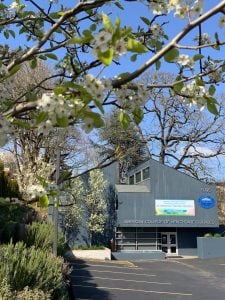 American College founded in 1978, is a fully online accredited institute of higher education specializing in holistic health. Based in Portland, OR; our goal is to make research-driven and science-based holistic health education taught by industry-leading experts accessible to anyone anywhere while still giving students a hands-on experiential learning experience like a traditional college and a strong sense of community, school pride and student bond.
American College founded in 1978, is a fully online accredited institute of higher education specializing in holistic health. Based in Portland, OR; our goal is to make research-driven and science-based holistic health education taught by industry-leading experts accessible to anyone anywhere while still giving students a hands-on experiential learning experience like a traditional college and a strong sense of community, school pride and student bond.
This commitment to our students and graduates reflects in our current survey results that reflect 98% of our students would recommend ACHS to a friend or family member.
We believe education is the most powerful tool for changing an individual and the world around us.
When a person enrolls as ACHS, it is vitally important that they graduate with tools they need to forge their own holistic and sustainable missions, build up their communities confidently and changing the face of healthcare with knowledge.
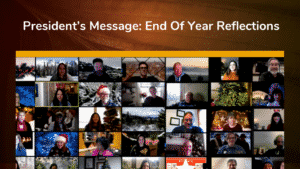 President’s Message: End Of Year Reflectionsby American College of Healthcare Sciences●December 31, 2020
President’s Message: End Of Year Reflectionsby American College of Healthcare Sciences●December 31, 2020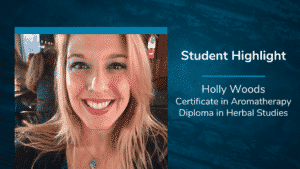 Student Highlight: Wife and Husband Team Start New Businessby American College of Healthcare Sciences●December 22, 2020
Student Highlight: Wife and Husband Team Start New Businessby American College of Healthcare Sciences●December 22, 2020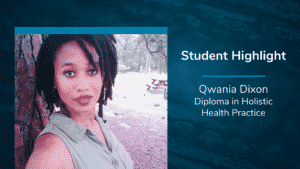 Student Highlight: Holistic Health, Gratitude, and Smoothies |achs.eduby American College of Healthcare Sciences●December 17, 2020
Student Highlight: Holistic Health, Gratitude, and Smoothies |achs.eduby American College of Healthcare Sciences●December 17, 2020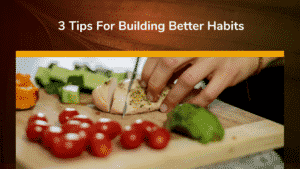 3 Tips For Building Better Habitsby American College of Healthcare Sciences●December 10, 2020
3 Tips For Building Better Habitsby American College of Healthcare Sciences●December 10, 2020
